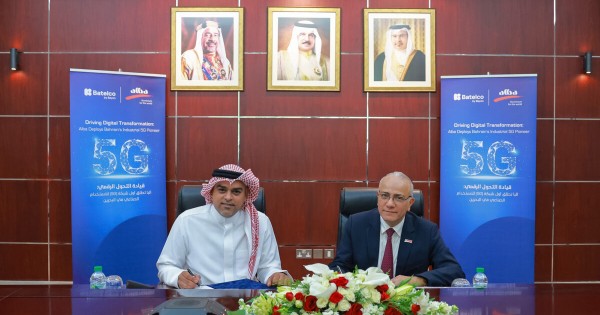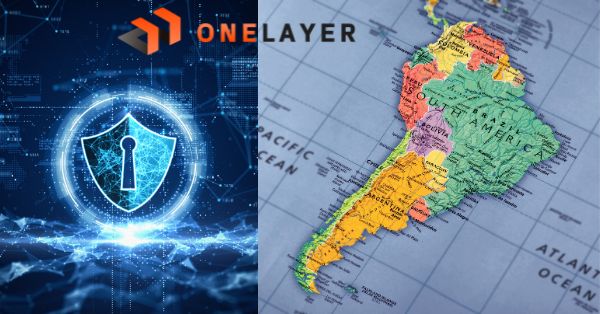In a major leap forward for Bahrain’s industrial sector, Batelco by Beyon has joined forces with Nokia to deploy the Kingdom’s first private 5G network. The project will power Aluminum Bahrain (Alba), the world’s largest aluminum smelter on a single site, with cutting-edge connectivity to drive digital transformation, operational efficiency, and worker safety.
Alba to Lead Bahrain’s Industrial 5G Revolution with Batelco and Nokia
The agreement was formalized on April 16, 2025, at Alba’s headquarters in Askar. Present at the signing were Batelco CEO Maitham Abdulla, Alba CEO Ali Al Baqali, and other senior executives, highlighting the strategic importance of the partnership.
The new private 5G network will serve as the foundation for Alba’s transition to Industry 4.0, unlocking capabilities like AI-powered predictive maintenance, real-time monitoring, and autonomous system support.
How Private 5G Powers Smart Manufacturing and Industry 4.0
Unlike public mobile networks, a private 5G network offers dedicated connectivity tailored to the unique requirements of industrial environments. At Alba, the key benefits include:
- Ultra-Low Latency: Enables real-time data transmission and immediate decision-making across the plant floor.
- Enhanced Security: Ensures sensitive industrial data is protected with built-in security controls.
- IoT-Enabled Safety: Allows for the use of smart sensors to monitor hazardous environments and improve worker safety.
- Smart Automation: Supports the deployment of connected machinery and robotics to optimize workflows and reduce downtime.
This will allow Alba to scale up its digitalization and automation efforts while boosting overall production efficiency.
Batelco, Nokia, and Alba Leaders on Bahrain’s 5G Industrial Future
Maitham Abdulla, CEO of Batelco by Beyon, emphasized the transformative nature of this deployment:
“This deployment at Alba is transformative for Bahrain’s industrial sector. Our partnership with Nokia enables us to bring private 5G capabilities to Alba, providing them with the technology needed to boost efficiency, enhance safety, and drive innovation. In fact, it’s more than just connectivity—it’s a strategic foundation for Alba’s continued growth and digital transformation.”
Mahmoud El-Banna, Head of Enterprise Campus Edge Sales for MEA at Nokia, added:
“We are excited to collaborate with Batelco by Beyon on Bahrain’s first industrial private 5G network, with Alba as our launch partner. This deployment will allow Alba to fully embrace Industry 4.0 applications, helping them unlock the benefits of digitalization and automation.”
Ali Al Baqali, CEO of Alba, highlighted how this network will support the company’s future direction:
“This private 5G network deployment marks a significant milestone in Alba’s digital transformation journey. By leveraging cutting-edge connectivity, we aim to revolutionize our operations, enhance safety protocols, and drive sustainable growth.”
He added that the new technology would empower Alba to:
- Optimize industrial processes
- Improve decision-making through real-time data analytics
- Strengthen its leadership in the global aluminum sector
Bahrain’s Manufacturing Pushes Forward with Private 5G at Alba
This project aligns with Bahrain’s broader goals to modernize its manufacturing base and adopt advanced digital technologies. By deploying the first industrial 5G network in the Kingdom, Batelco and Nokia are laying the groundwork for other large-scale industrial deployments across the country.
Alba’s use of private 5G will serve as a model for other manufacturers in the region looking to adopt secure, scalable, and high-performance network solutions for critical infrastructure and operations.
Key Takeaways
- First of Its Kind: Batelco and Nokia will deploy Bahrain’s first private industrial 5G network at Alba.
- Supporting Digital Transformation: The network will enable AI, IoT, real-time monitoring, and automation at one of the world’s largest aluminum smelters.
- Ultra-Reliable Connectivity: Low-latency, high-speed 5G supports mission-critical operations and enhances workplace safety.
- Strategic Industry 4.0 Move: Alba’s deployment is a significant step toward smart manufacturing and sustainable industrial innovation.
- National Impact: The project marks a key moment in Bahrain’s tech modernization efforts, setting a new standard for digital infrastructure in the region.
As Bahrain accelerates its push toward smart industry and digital innovation, private 5G networks like the one at Alba will become essential for driving efficiency, safety, and competitiveness across the manufacturing landscape.






























